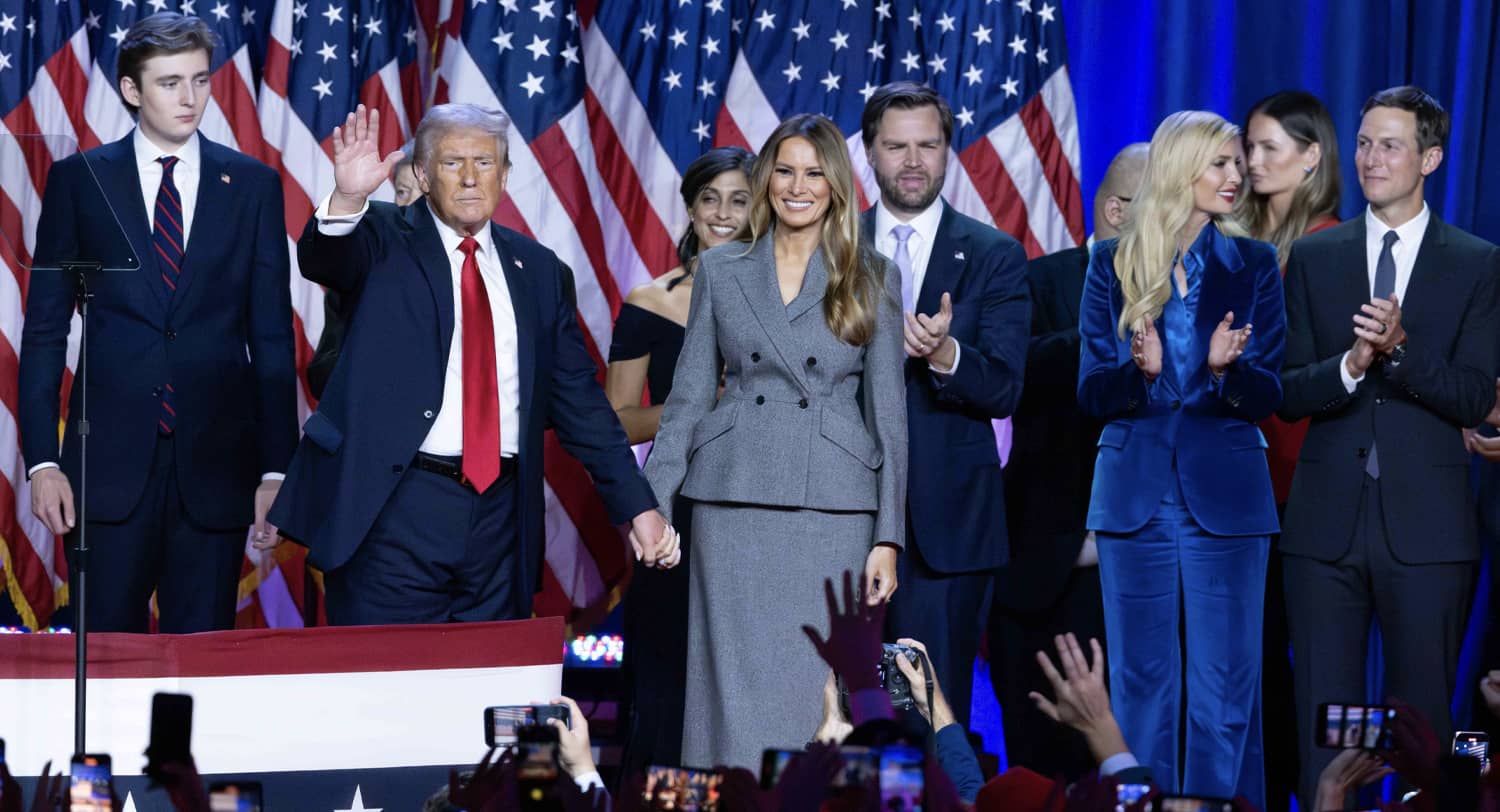After four intense years, enduring threats to his life and navigating countless battles, President Donald Trump has achieved what many deemed impossible: he has triumphed once again. The American people have renewed their trust in his leadership, driven by a shared belief in a brighter tomorrow and the enduring promise of the American Dream.
As he once urged America to “Fight, fight,” the country now calls on him to lead. This victory represents more than just a political outcome; it is a testament to the resilience of a leader and the strength of a nation that values its ideals. The journey may have been grueling, but as George Washington wrote, “The preservation of the sacred fire of liberty…is deeply staked on the experiment entrusted to the hands of the American people”.
With this election, America renews that experiment. Two of the greatest foreign policy challenges in the coming term will lie in the Middle East and the South China Sea and both require a proactive approach.
Expanding on the Abraham Accords: A Path to Peace
The Abraham Accords is a groundbreaking initiative of your first term, made possible by the extraordinary dedication and resilience of your team. Jared Kushner, in particular, played a pivotal role, channeling his unwavering commitment and strategic vision to forge historic peace between Israel and several Arab nations. Together, your leadership and the tenacity of your team achieved a milestone that many thought impossible. The success of these accords proves that diplomacy can yield lasting results. Building on this legacy by expanding the accords could solidify your role as a broker for peace and promote regional stability.
The time is ripe for a new phase: expanding the Accords beyond the Arab states to include Muslim-majority countries in Asia, such as Bangladesh, Indonesia, and Malaysia, as well as nations with significant Muslim populations like India and the Philippines. Imagine the impact: Bangladeshi developers working with Israeli tech firms, or Brunei investing in Israeli biotech.
These partnerships could drive economic growth and innovation on both sides. Collaborative projects might focus on technology transfers in agriculture, water management, and healthcare, providing practical solutions to pressing challenges while building lasting bridges of cooperation. Such ties would create fresh opportunities for cultural exchange and understanding, helping to dispel stereotypes and promote mutual respect. By highlighting shared interests, the US can play a pivotal role in fostering peace and prosperity across diverse populations.
Expanding the Accords also strengthens the US position in countering Iran, which continues to advance its nuclear program and support destabilizing forces across the region. Iran’s proxies threaten critical trade routes, and the Iranian regime’s policies pose risks that reach far beyond its borders. Countries like Yemen and Lebanon are severely affected by Iranian influence, adding to regional instability. By supporting a coalition that encourages Iran to engage rather than destabilize, you could lay a strong foundation for a more peaceful Middle East.
Balancing Influence in Asia: Partnerships Over Dependence
In the Far East, offering Muslim-majority nations an alternative to China’s influence enhances peace and prosperity for America’s allies while countering Chinese dominance. China has aggressively pursued economic partnerships in Southeast Asia, often using debt diplomacy to expand its influence. By promoting partnerships that tie Israel’s successes to the needs of Muslim-majority nations, the United States could shift geopolitical dynamics in favor of its allies.
One way to begin is by creating technology hubs in collaboration with Israel that would attract significant Western investment. These hubs could serve as centers of innovation, where countries like Indonesia and Malaysia could develop their tech industries with Israeli expertise. The US could play a vital role in facilitating this process, ensuring that these nations gain economic independence rather than becoming beholden to foreign debt.
A Pragmatic Approach to Russia
Another complex geopolitical challenge awaits in Eastern Europe, where the war in Ukraine has taken a heavy toll on both nations and the global community. While Ukraine deserves to protect its sovereignty, it’s essential to recognize that Russia also has security concerns regarding NATO’s eastward expansion. Addressing this sensitive issue will require thoughtful negotiations between Ukraine and Russia, fostering a sustainable peace that acknowledges both parties’ needs.
Consider the economic potential of collaboration: Ukraine, as one of the world’s largest grain exporters, could help provide food security for Russia and its allies if trade barriers were lifted. The current conflict has disrupted global grain supplies, leading to food shortages worldwide. By establishing cooperative agricultural trade, both nations could see significant economic benefits, stabilizing their economies and contributing to global food security. In turn, Russia could supply Ukraine with energy, reducing its dependency on more distant sources. Joint economic projects, especially in border regions, could serve as confidence-building measures, replacing confrontation with collaboration.
As you outlined in The Art of the Deal, successful negotiation requires respecting both the past and the potential for a collaborative future. Ukraine will need a robust framework of international support to secure its sovereignty while encouraging Russia to engage constructively. The combination of economic incentives and security assurances could lay the groundwork for a new chapter of peace.
Leading with Strength and Vision
Mr. President, intelligence and creativity can resolve even the world’s most persistent problems. When you change incentives, you change outcomes. Now more than ever, the world needs a United States that defends democracy with wisdom and vigor. The challenges ahead are formidable, yet they present opportunities for the US to reassert its leadership on the global stage.
A strategic approach that emphasizes diplomacy and partnership will be crucial. By engaging with allies and fostering meaningful connections, the US can champion the values of democracy and cooperation that have historically defined American foreign policy.
The world is watching, Mr. President. The choices you make in the coming months will resonate far beyond America’s borders. Great things happen when leaders rise to meet history with courage and resolve.

